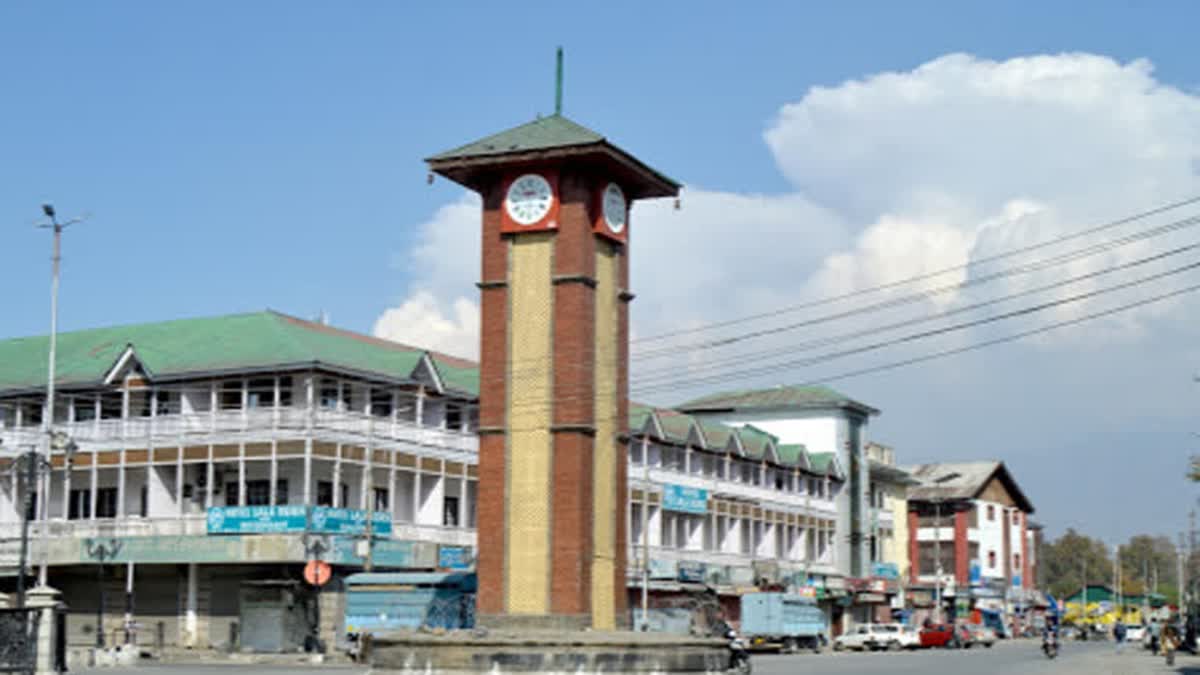Srinagar(Jammu and Kashmir): June 19, 2018, marked a pivotal moment in Jammu and Kashmir's political landscape. The region's last locally elected government dissolved as Mehbooba Mufti, then-Chief Minister, stepped down following the Bharatiya Janata Party (BJP) withdrawing from the coalition with her Peoples Democratic Party (PDP). Citing an untenable alliance, the BJP's exit was attributed to growing ideological differences and dissatisfaction with the coalition's handling of regional issues.
Since then, Jammu and Kashmir has not had an elected local government. Central rule has persisted, but change is imminent as approximately 87 lakh voters are set to elect their Assembly by September this year.
The coalition broke apart due to escalating differences between the PDP and BJP. Ram Madhav, a key BJP leader, announced the party's withdrawal, declaring the alliance "untenable" and advocating for Governor's rule to manage the state's affairs. "Considering Jammu and Kashmir as an integral part of India and to control the prevailing situation, we have decided to hand over the state's power to the Governor," Madhav said while addressing a press conference on June 19, 2018.
With no alternative alliances available, Mehbooba resigned. "We defended Article 370 and 35A," she said, emphasizing the region's unique status and opposing the "muscular policy."
NN Vohra, then Governor of Jammu and Kashmir, recommended the imposition of Governor's Rule to President Ram Nath Kovind. Subsequently, President's Rule was imposed by the end of 2018. The most significant change came in August 2019 when the Modi government downgraded the state into two Union Territories — Jammu and Kashmir, and Ladakh — and revoked the region's special status by abrogating Article 370.
Despite anticipated unrest, the central government has maintained control, reducing incidents of militancy. However, there has been an uptick in violence with the upcoming elections.
On December 11, a Supreme Court bench led by Chief Justice DY Chandrachud set a deadline for holding Assembly elections in Jammu and Kashmir by September, validating the abrogation of Article 370.
Following the announcement of the Lok Sabha poll results, the Election Commission initiated the Assembly election process. On June 7 of this year, the Commission invited political parties to apply for common symbols for their candidates, starting a special summary revision of the electoral roll before the elections.
Jammu and Kashmir saw a 58.58% voter turnout in the recent Lok Sabha elections, the highest in 35 years, marking a significant rise from the previous election.
A Delimitation Commission, established in 2020, redefined the constituencies, resulting in a 90-member Assembly with 47 seats in Kashmir and 43 in Jammu. The election is scheduled to occur before September 30. The last assembly elections in Jammu and Kashmir were held about ten years ago, in 2014.
As the Assembly election process began, militancy-related incidents resurfaced. On June 9, militants ambushed a bus in Reasi district, killing nine pilgrims. Additional incidents in Kathua and Doda districts resulted in more casualties and injuries.
In response, Prime Minister Narendra Modi ordered enhanced anti-terror measures, while Home Minister Amit Shah coordinated security efforts. The government deployed 50 additional battalions to bolster security in the region.
PM Modi is expected to visit Srinagar for Yoga Day, followed by the annual Amarnath Yatra pilgrimage, both requiring tight security amid the election buildup.



